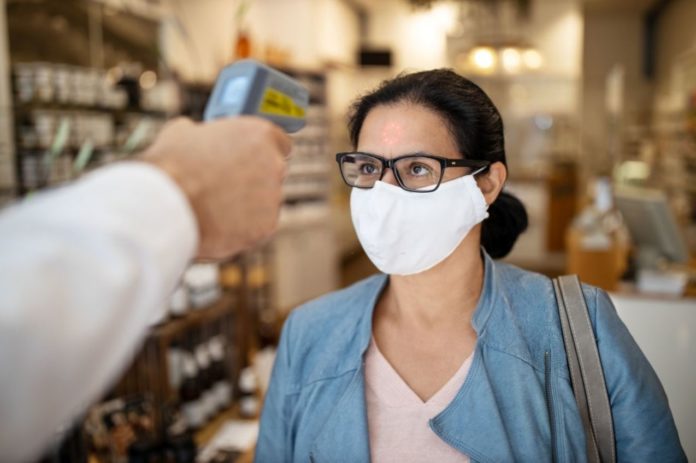Only 40 percent of COVID-19 survivors report a full recovery within a month. The rest have been experiencing various problems for a long time.
More and more studies around the world are devoted to the long-term effects of coronavirus infection. They show that symptoms can persist for months, and the risk of death increases – even after a mild illness.
Long covid
All over the world, according to official data, almost 150 million people have been ill with coronavirus. Most recover within a month, but many experience long-term symptoms.
Experts agree that from 30 to 60 percent of patients face various options for ailment after suffering COVID-19.
In December 2020, the UK’s National Institutes of Health proposed a new classification of conditions caused by the SARS-CoV2 virus:
- Acute COVID is a short-term course of illness lasting no more than four weeks.
- Ongoing symptomatic COVID – symptoms bother the patient for 4-12 weeks.
- Postcovid syndrome is the so-called long COVID when a person has been sick for more than three months.
Post-covid syndrome, which often manifests itself in chest and muscle pain, heart palpitations, coughing and stomach problems, often affects those patients who have mild infection, British doctors report.
The scientific medical journal Nature Medicine cites data from a study conducted on 1250 patients discharged from hospitals in the US state of Michigan. During the study period (60 days after discharge from the hospital), 6.7 percent of patients died, 15 percent required re-hospitalization.
Of the 488 patients who took part in the telephone survey, 32.6 percent reported persistent symptoms, including 19 percent new or worsening of residual symptoms. The most commonly reported reports were shortness of breath (23 percent), coughing (15.4 percent), and loss of taste and / or smell (13 percent).
A study in Italy found that the most common symptoms were fatigue (53 percent), shortness of breath (43.4 percent), joint pain (27 percent), and chest pain (22 percent).
Moreover, 55 percent of patients had three or more symptoms. A decrease in the quality of life was noted by 44 percent of the study participants.
Doctors from France report that two-thirds of patients had some kind of symptoms for two months. Moreover, one-third reported that they felt worse than at the beginning of the acute COVID-19.
Fatigue, shortness of breath, post-traumatic stress disorder, anxiety, depression, and impaired concentration and sleep were reported in a third of the study participants.
Research data allow us to talk about factors that increase the risk of post-covid development. Thus, the severity of the course of the disease is “significantly associated” with the manifestation of dyspnea, increased fatigue, weakness, and PTSD after clinical recovery.
A study in China found that women were more likely to be fatigued, anxious or depressed within six months.
According to the Survivor Corps community, which surveyed more than five thousand patients, the disease can proceed in waves. In this case, the intervals between exacerbations are 7-10 days.
In general, researchers from different countries come to the conclusion that only 40 percent of patients have a complete recovery by the thirtieth day after discharge.
According to some reports, after six months, one in three are still experiencing one or more symptoms. At the same time, 14 percent report weakness even nine months after the actual recovery.
New data was also presented in a large-scale study conducted in the United States and published in the scientific journal Nature on April 22. In it, scientists from the University of Washington School of Medicine in St. Louis studied the condition of more than 73,000 US veterans in the first six months after being infected with the coronavirus.
They all experienced mild to moderate symptoms, and none of them required hospital treatment. The researchers compared the mortality and risk of developing certain complications among people who have had coronavirus with data from nearly five million American veterans who did not contract COVID.
Those who got the coronavirus had a 60 percent higher risk of dying within six months of being infected than those without COVID, according to the study. Also, the risk of other diseases was significantly higher in people with coronavirus infection than in the control group.
Study suggests that they had a particularly high risk of developing respiratory diseases, but diseases of the nervous system, psyche, metabolic disorders or cardiovascular problems were diagnosed in them much more often than in people who did not have a diagnosis of COVID-19.
According to the study, patients with coronavirus also often take medications for a long time – pain relievers, antidepressants or drugs that lower blood pressure.
Respiratory disease specialist at University College London hospitals, Dr. Melissa Haitman, who is on the NHS COVID-19 working group, suggests post-covid syndrome in patients after mild coronavirus is due to the fact that they carry the infection at home or are treated incorrectly, or completely refuse treatment, which ultimately reduces their immunity.
Postcovid Syndrome Symptoms
Most often, patients with post-covid syndrome are observed:
- chronic fatigue
- dyspnea
- cough
- joint pain
- chest pain
Some patients with postcovid syndrome also have:
- difficulty concentrating
- depression
- muscle pain
- headache
- temperature that can come and go
- tachycardia
- lack of smell and taste
- insomnia
- cognitive impairment
- anxiety
- frequent mood swings
In rare cases:
- inflammation of the heart muscle
- impaired lung function
- kidney problems
- rash
- hair loss
